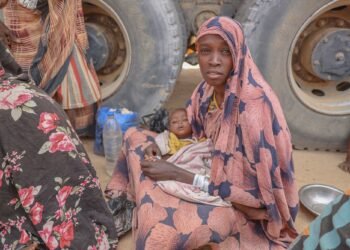Kenya has intensified security along its border with Ethiopia following a violent altercation between Ethiopian and Kenyan fishermen at the Omo River, which has left multiple individuals missing.
The incident has heightened concerns in the Turkana and Dassanech communities, which have long shared economic activities such as fishing. Kenyan Minister of Interior Kipchumba Murkomen addressed the crisis, acknowledging the deep anxiety caused by the missing persons.
“More than twenty people are missing. If they were found dead or injured, it would have been easier to handle than the uncertainty we’re facing now. Not knowing whether they are alive or dead creates a lot of anxiety, and that uncertainty hurts even more.”
Kipchumba Murkomen
The Kenyan government has confirmed it is working closely with Ethiopian authorities to locate and safely recover the missing individuals. Murkomen also emphasized the collaborative efforts between the two nations.
“You see, the Regional Commissioner is here with us. Together, we are assembling a team led by the County Commissioner who will travel to Ethiopia tomorrow to meet with local officials. We will collaborate with them to find and recover our people.”
Kipchumba Murkomen

In response to the escalating tensions, the Interior Ministry announced plans to establish a border post to monitor cross-border movements. This initiative aims to enhance security measures by conducting thorough checks on individuals entering Kenya, thereby reducing the risk of further violence.
Historical clashes between Ethiopian and Kenyan fishermen along the Omo River have been a recurring issue, largely driven by resource competition and territorial disputes. The Omo River, forming part of the Kenya-Ethiopia border, has long been a hotspot for conflict among fishing communities.
One of the primary drivers of these tensions is the dwindling availability of vital resources such as fish and pastureland. The Turkana people of Kenya and the Dassanech of Ethiopia have traditionally depended on fishing and livestock farming for their livelihoods.
However, the receding waters of Lake Turkana — largely attributed to the construction of dams such as Gilgel Gibe III on the Omo River — have exacerbated these disputes. The dam has drastically reduced the lake’s water levels, depleting fish stocks and intensifying competition for the remaining resources.
A History of Deadly Clashes
Intercommunal violence between these groups has a long history, dating back to the early 2000s. In 2005, violent confrontations resulted in the deaths of at least four Ethiopians and 20 Kenyans, with some reports suggesting the number of Kenyan casualties was as high as 69.
Both Kenya and Ethiopia have struggled to manage these cross-border conflicts effectively. The absence of clear border demarcations, coupled with limited state intervention, has perpetuated instability. Addressing these challenges requires coordinated efforts, including joint management initiatives for the Omo River basin to ensure sustainable resource distribution and prevent further violence.
Communities dependent on Lake Turkana and the Omo River have suffered significant economic losses due to declining water levels and fish stocks. The reduction in natural resources has not only threatened their primary means of subsistence but has also led to increasing migration in search of alternative livelihoods.
Beyond economic implications, these conflicts carry deep cultural and social consequences. The affected communities, deeply rooted in pastoralist traditions, have struggled to maintain their way of life amid growing insecurity. Competition over resources has fueled longstanding tensions, resulting in cycles of violence that disrupt regional stability.
As authorities work to secure the border and recover the missing individuals, the Kenyan government remains focused on long-term solutions to prevent future conflicts. Strengthened diplomatic relations, sustainable resource management, and enhanced security measures will be crucial in addressing the root causes of these ongoing disputes.
READ ALSO: Lawsuit for Renaming KIA Sparks Constitutional Debate







